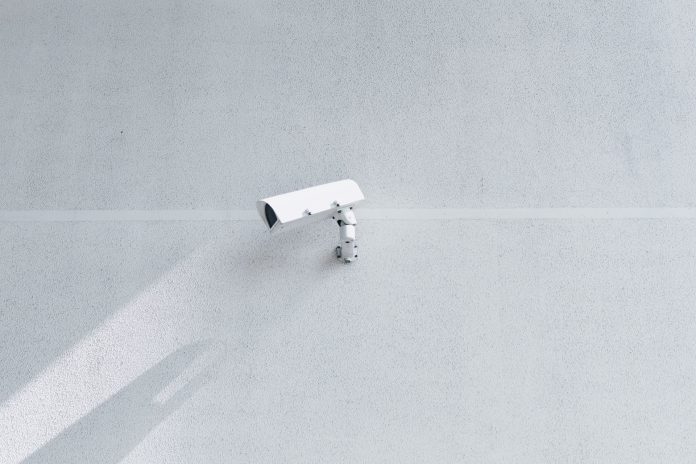- SmartWater, Veesion and Dahua Technology among the companies helping to curb retail crime in the United Kingdom
- Retail crime on the rise across the country with Leeds City Centre taking the lead as the most affected area
- Tighter security measures and addressing the root of the problem, key to tackling the growing rate of shoplifting
Co-op has recently warned that some communities could become ‘no-go’ areas for shops due to soaring levels of retail crime.
The convenience store operator said crime in its outlets has increased by more than a third over the past year, with about 1000 cases of shoplifting and anti-social behaviour in its shops every day in the six months to June.
This comes as new research by the British Retail Consortium reveals that incidents of theft have increased by 27% across ten of the largest cities in the UK, with some cities up as much as 68%.
Amongst the areas affected the most is Leeds City Centre, having 2,157 recorded crimes in 2022, the equivalent of six offences and a surge of 83% on the previous year.
The trade association’s survey also uncovered that cases of violence and abuse against retail employees rose from more than 450 daily in 2019-2020 to more than 850 in the last year, including physical and verbal assault and threats with weapons.
For shop assistants and managers, this daily struggle can be costly and frustrating. A co-op store manager in Leeds said that shoplifting has always been a problem, but things have really changed since the pandemic.
According to another store manager in East London, the most frightening aspect is when the criminals clamber over the kiosks and just tip the products into their bags.
Offenders simply come in and take what they want, and the situation is aggravated by the fact that police forces do not have the resources or time to attend to these incidents.
Talking about the reason behind these remarkable statistics, Jamie Barnes from Fresh Start, a charity run by ex-offenders, states that with the cost of living crisis, many are facing the choice of either paying for food or paying rent and bills.
The cost of living increased sharply across the UK during 2021 and 2022 with the annual rate of inflation reaching 11.1% in October 2022, a 41-year high. This means that at the time when Kantar published its market research in March 2023, the average family’s annual grocery bill was approximately £800 higher than it was a year ago.
Testimonials gathered by BBC reporter Ez Roberts, show that given the current economic climate, security guards at convenience stores feel sorry for people’s financial situation, with one even apologising to a shoplifter when they got caught.
Yet this idea is rejected by many retail experts. The Association of Convenience Stores’ Head of Communications, Chris Noice, believes that products such as baby formula are targeted because they are high-value items that can be re-sold online. ‘Typically, people are stealing to fund their drug or alcohol habits’, he states.
Baby formula has also been known to be used to cut or bulk out drugs, with many stores now resorting to putting it behind the tills to stop them from being stolen.
These seemingly conflicting views can, however, be seen to be reconciled under one common goal – the implementation of effective preventative measures to dissuade prolific offenders and organised gangs.
Tighter security measures are becoming more common in supermarket aisles to tackle the cost of shoplifting, which stood at a striking £1.76 billion in 2021/22.
As an example, Police Community Support Officers in parts of West Yorkshire use SmartWater spray to mark people or items with a unique forensic code. Following incidents of retail crime, investigators can identify spray-tagged criminals, even months after, to verify a suspect’s guilt by placing the offender at the crime scene and therefore achieve a higher chance of successful conviction.
Using SmartWater has proved an effective crime deterrent, with stores like Homebase experiencing a 20% reduction in stock losses since it began using it.
Similarly, enhanced AI CCTV security cameras for video surveillance are also a successful measure to reduce retail crime.
Introduced in 2021, an AI-based system produced by French company Veesion, checks customers for suspicious behaviour, films them and alerts staff through an app within 20 seconds. By adopting this technology, a Nisa store in Poplar London has managed to cut its shoplifting losses from £1,000 a week to less than £100.
Dahua Technology’s AI and deep cognitive learning tech also has the ability to actively detect shoplifting in real-time by analysing gestures, movements and actions of body parts. The information can be then sent through a notification to a mobile phone where daily and weekly statistics can be viewed within an app, enabling the tracking of incidents and subsequent inventory levels.
The company’s advanced technology can also detect ‘bottom of basket’ theft which is usually invisible to Electronic Article Surveillance (EAS) systems since they are often not tagged or secured electronically.
Ultimately, shoplifting strikes at the heart of local communities and tackling the issue successfully will only work if it is done by addressing the root causes such as addiction, mental health issues and the cost of living crisis. Yet, adopting visible, effective crime deterrence in parallel, can be of reassurance to customers, stores and employees ensuring a reduced economic impact across the industry.Surveillance to Curb Retail Crime Amidst a Cost of Living CrisisSurveillance to Curb Retail Crime Amidst a Cost of Living Crisis



 Bitcoin
Bitcoin  Ethereum
Ethereum  Tether
Tether  XRP
XRP  Solana
Solana  USDC
USDC  TRON
TRON  Cardano
Cardano  Lido Staked Ether
Lido Staked Ether  Avalanche
Avalanche  Toncoin
Toncoin